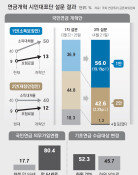Disbandment of a party benefiting North Korea
Disbandment of a party benefiting North Korea
Posted August. 30, 2013 05:23,
The Justice Ministry has been conducting a juridical review on a petition by multiple conservative civic groups for the disbandment of the Unified Progressive Party. Arguing that the partys anti-national and anti-constitutional acts benefiting North Korea should not be tolerated any more, the National Action Headquarters, the National Normalization Committee, and the Organizing Committee for National Convention Commemorating the Korean War of the Safeguard Korea, submitted petitions in April and May this year.
Article 8 of the Constitution of Korea stipulates, If the purposes or activities of a political party are contrary to the fundamental democratic order, the government may bring an action against it in the Constitutional Court for its dissolution and the political party shall be dissolved in accordance with the decision of the Constitutional Court.
The civic groups have claimed that the Unified Progressive Party`s doctrines -abolishment of the National Security Law, withdrawal of U.S. forces and the dissolution of ROK-U.S. alliance- are compliance with Pyongyangs strategy to make South Korea a communist regime, threatening free and democratic order in the South. The groups also insisted that they party has conducted certain acts that seriously threatened our national security and fundamental democratic order, such as announcing condolences over the death of former North Korean leader Kim Jong Il, supporting North Koreas nuclear development, criticizing the Seoul Nuclear Security Summit for being a hypocritical disguise to press Pyongyang further and nominating unconverted anti-state offenders as nominees for lawmakers.
The current situation is more serious than April or May when the conservative groups submitted the petitions. Lee Seok-ki, a lawmaker of the party, and many leading party members are under investigation for charges of conspiracy of a civil war, including organizing a secret group for revolution, planning to destroy national infrastructures, acquiring firearms and plotting to subvert national system.
The code of conduct of the East Gyeonggi Union, the party`s key organization, includes, After gaining control of progressive parties in South Korea, actively advance into the parliament and prepare for a decisive moment. When the decisive moment arrives, support North Korea through an armed uprising. Far from being cooperative for the investigation, the party has tried to hinder and stop legitimate enforcement of public authority, saying all the charges have been fabricated. It is highly unlikely that the party abides by the Constitution and laws of the Republic of Korea.
The Korean society has either condoned or connived under the name of democracy that pro-North Korea people or anti-state offenders were appointed for government positions or became lawmakers. It has been 160 days, without kicking it off, since the ruling and opposition parties agreed to review the qualifications of two lawmakers of the Unified Progressive Party, Lee Seok-ki and Kim Jae-yeon, who became lawmakers through illegal primary election. If the two lawmakers had been expelled from the National Assembly, taxpayers money would not have been used for pro-North Korea activities.
Germany, a country suffered under Nazi Germany, has strictly constrained activities of unconstitutional parties or extremist groups based on the spirit of no freedom for the enemies of freedom. Germany dissolved a party succeeding the Nazi Party and a communist party in accordance with court decision that the parties were unconstitutional. Germany deprives those who use their basic rights under the Constitution to attack fundamental democratic orders of the rights. In the case of Korea, however, no parties have been disbanded through a petition for dissolution. Many groups that have been judged by the Supreme Court as being groups benefiting North Korea are still active because no laws stipulate forced disbandment.
Now is the time for South Korea to seriously discuss the disbandment of the Unified Progressive Party, a party that denies constitutional order. If the juridical review finds legitimate reasons for disbandment of the party, the Justice Ministry should not hesitate to bring the case to the Constitutional Court.







